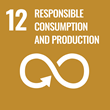Project information
Synthetic biology-guided engineering of Pseudomonas putida for biofluorination
(SinFonia)

- Project Identification
- 814418
- Project Period
- 1/2019 - 8/2023
- Investor / Pogramme / Project type
-
European Union
- Horizon 2020
- Leadership in enabling and industrial technologies (LEIT) (Industrial Leadership)
- MU Faculty or unit
-
Faculty of Science
- prof. Mgr. Jiří Damborský, Dr.
- MUDr. Jan Mičan
- RNDr. Michal Nemergut, PhD.
- Ing. Veronika Nováková
- RNDr. Martin Toul, Ph.D.
- Mgr. Adam Paulin Urminský
- Cooperating Organization
-
Tartu Ülikool
University of St Andrews
University of Luxembourg
Agencia Estatal Consejo Superior
Technical University of Denmark
- Responsible person Dr. Pablo Iván Nikel
Bioplastech Ltd.
Biofaction KG
IN SRL Impresa Sociale
ifeu - Institut für Energie- und Umweltforschung Heidelberg gGmbH
Chemours Netherlands B.V.
Altar
Nature has hardly evolved biochemical reactions involving fluorine (F), the most abundant halogen on Earth. Organic compounds containing F (fluorochemicals) are, however, extremely relevant from an industrial point of view. Fluoropolymers are the main fluorochemicals in the market worldwide, and are exclusively synthesized using chemical methods. Moreover, current fluorination technologies usually involve corrosive and toxic reagents that have a negative impact on the environment. Designing sustainable bioprocesses based on alternative and safer fluorinating agents from renewable substrates is thus a long-sought-after, yet unfulfilled goal. SinFonia proposes to engineer the metabolically-versatile bacterium Pseudomonas putida to execute biofluorinations for generating novel fluoropolymers from renewable substrates.
P. putida KT2440, a generally regarded as safe microorganism, serves as an ideal microbial platform for F-dependent biochemical reactions due to its extraordinary resistance to harsh and stressful operating conditions. SinFonia will exploit natural selection to enhance bioproduction through a smart strain engineering approach in which bacterial growth will be coupled to biofluorination. Our target compounds are a whole family of fluorinated polyesters with enhanced physicochemical and material properties, with uses as self-cleaning surfaces, low-surface-energy coatings, bio-based lubricants, membranes for fuel cells, and anti-fouling materials. The versatile P. putida strains engineered during the project can be easily adapted to synthesize other added-value fluorochemicals. Unlike chemical processes, the source of F in our system will be NaF, an inexpensive and safe salt, and sugars as the main carbon source. In-depth analysis of all the environmental and economic benefits of the new fluorination technology, and interactive communication of social benefits associated with target products, are essential components of SinFonia.
Sustainable Development Goals
Masaryk University is committed to the UN Sustainable Development Goals, which aim to improve the conditions and quality of life on our planet by 2030.
Publications
Total number of publications: 30
2022
-
Mechanism-Based Strategy for Optimizing HaloTag Protein Labeling
JACS AU, year: 2022, volume: 2, edition: 6, DOI
2021
-
Computational design of enzymes for biotechnological applications
Biotechnology Advances, year: 2021, volume: 47, edition: March–April, DOI
-
Computational Enzyme Stabilization Can Affect Folding Energy Landscapes and Lead to Catalytically Enhanced Domain-Swapped Dimers
ACS Catalysis, year: 2021, volume: 11, edition: 21, DOI
-
Engineering the protein dynamics of an ancestral luciferase
Nature Communications, year: 2021, volume: 12, edition: 1, DOI
-
FireProt(ASR): A Web Server for Fully Automated Ancestral Sequence Reconstruction
Briefings in Bioinformatics, year: 2021, volume: 22, edition: 4, DOI
-
Fully Automated Ancestral Sequence Reconstruction using FireProtASR
Current Protocols, year: 2021, volume: 1, edition: 2, DOI
-
Multi-pathogen infections and Alzheimer's disease
Microbial Cell Factories, year: 2021, volume: 20, edition: 1, DOI
-
Screening of Natural Compounds as P-Glycoprotein Inhibitors against Multidrug Resistance
BIOMEDICINES, year: 2021, volume: 9, edition: 4, DOI
-
Screening of world approved drugs against highly dynamical spike glycoprotein of SARS-CoV-2 using CaverDock and machine learning
Computational and Structural Biotechnology Journal, year: 2021, volume: 19, edition: May, DOI
-
SoluProt: prediction of soluble protein expression in Escherichia coli
Bioinformatics, year: 2021, volume: 37, edition: 1, DOI



